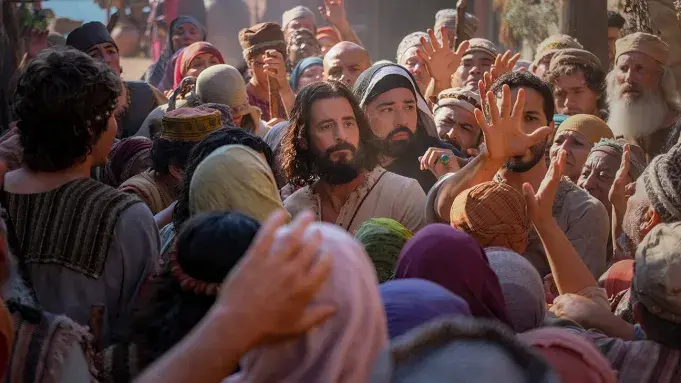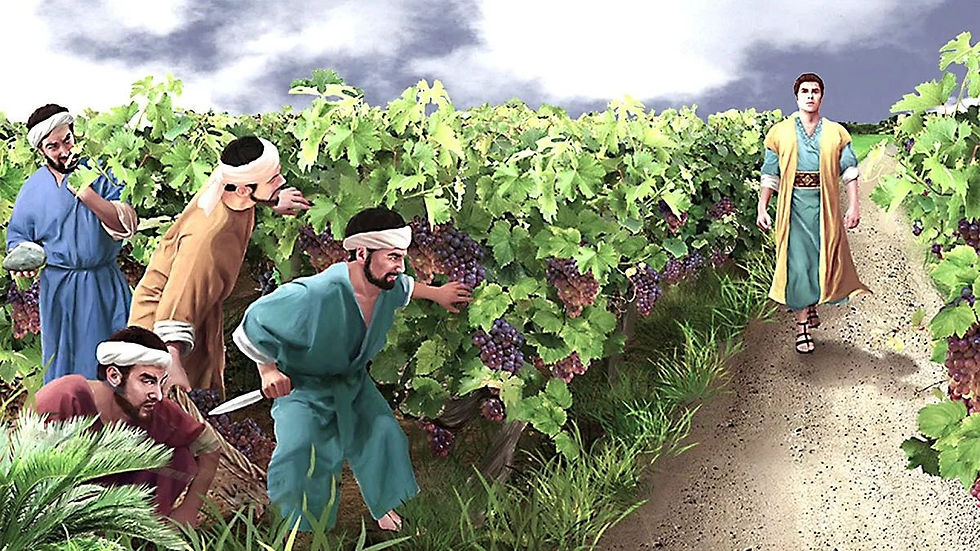Parable of the Wedding Feast
- josnardionzon5
- Oct 15, 2023
- 4 min read

THE KINGDOM OF GOD IS A GIFT AND A TASK
Twenty-eighth Sunday in Ordinary Time
Gospel Reading: Mt 22:1-14 | October 15, 2023
During the town fiesta, if some visitors bring plastic bags for takeaway food, others might go hungry. To prevent this, some households control food distribution to ensure everyone gets a fair share. The food and drinks are free, but it's our responsibility to make sure everyone can eat and drink.
In today’s Gospel (Mt. 22, 1-14), Jesus tells us the story of a king who gave a wedding feast for his son. Those invited did not come for one reason or another. So, in the end, he opened his gates to all, and his hall was filled with guests.
Imagine this as a Filipino wedding feast, when some visitors have plastic bags for takeaway food, do you think that the food will be enough for all? This is why in most wedding feasts, the hosts will see to it that the distribution of food and drink will be fairly given.
We need to remember that the Parable of the Wedding Feast is addressed to the chief priests and elders of the people, the Jewish religious leaders. For several Sundays now, Jesus spoke to them about the Kingdom of God in parables telling them of the consequences of their hardened hearts to accept God’s gratuitous gift of liberation and salvation. Jesus even told them that the tax collectors and prostitutes would enter the Kingdom of God and not them, who considered themselves morally superior to these sinners. In today’s parable, Jesus describes the Kingdom of God as a wedding feast and the invited guests did not come and so, the king opened the door to all who accepted his invitation.
In the first reading, prophet Isaiah described this wedding feast: “On this mountain the LORD of hosts will provide for all peoples a feast of rich food and choice wines, juicy, rich food and pure, choice wines. On this mountain he will destroy the veil that veils all peoples, the web that is woven over all nations.” (Isa 25:6-7) This is the messianic banquet on Mount Zion, the New Jerusalem, in which the people will no longer suffer and want; they will no longer endure suffering and death. In this messianic banquet, the people will experience fullness of joy and gladness, peace and reconciliation... because they are sharing in the banquet with God. This is God's invitation to his people Israel.
Last Sunday, God carefully prepared the vineyard (People of Israel) and entrusted its care to the tenants (Jewish religious leaders) but when the harvest came, the tenants killed his servants and his son (the prophets) and therefore, rejected God’s invitation. In Matthew, these religious leaders did not only reject God’s invitation but also killed the prophets, including his son. And so, the king punished them by killing them and destroying their city. Matthew referred to the destruction of the Temple of Jerusalem (70 CE).
In today’s Gospel, the invited guests (Jewish religious leaders), who were entrusted with the duty of shepherding the people of Israel, rejected the invitation. And, so God offers this invitation to Gentiles and sinners. And those who accepted this gift share in the banquet of the Lord. His is the Matthean apologetic explaining the mixed membership of the Matthean community—the Jews and Gentiles, the sinners and saints. However, the invitation—as a gift—is just the first step. The invitation or the gift must be accepted. There is a second step: the task. Let us explain this task.
In the Gospel, the King went to the banquet hall to see whether the invited guests wore garments that were appropriate to the occasion (Mt 22:11-12). What is this proper garment? Prophet Isaiah described the garment: “For he has clothed me with the robe of salvation and wrapped me in a mantle of justice” (Isa 61:10b) In my previous reflections, I pointed out the prophetic tradition of the two-sided sins of the leaders of Israel: idolatry and injustice. The new clothes for the wedding feast are doing justice. The destruction of the Temple of Jerusalem was caused, as the prophet Jeremiah prophesied, by idolatry and injustice. We do not practice love and justice when we are full while others are hungry. We do not wear the proper garment in God's wedding feast and we will be thrown away "into the darkness outside, where there will be wailing and grinding of teeth." (Mt 22:13)
In the wedding feast in Mount Zion or New Jerusalem, albeit the food and drink are freely given to all, there shall be sharing of food so that no one was hungry. The experience of the first Christians might shed light on this: In the Acts of the Apostles, the early Christians gathered together in the Eucharistic meal, sharing their resources, and no want was hungry among them. (Acts 4:32-34).
The Kingdom of God is a gift freely and graciously given to us by God, allowing us to commune with Him and share in His messianic banquet with rich food and choice wines. However, in accepting this gift of the Kingdom of God, we have the task of sharing the food with one another so that no one among us is hungry. And we can only do this when we build fellowship with each other as brothers and sisters, living together in a community with one mind and one heart, sharing our resources with one another so that no one among us is hungry.
Yes, the Kingdom of God is a gift but it is also a task. How can we celebrate the messianic banquet in today’s world where there is so much suffering caused by injustice? In what way we can participate in the work of justice and peace in our family, in our barangay, in our country, and in the world?



تعليقات